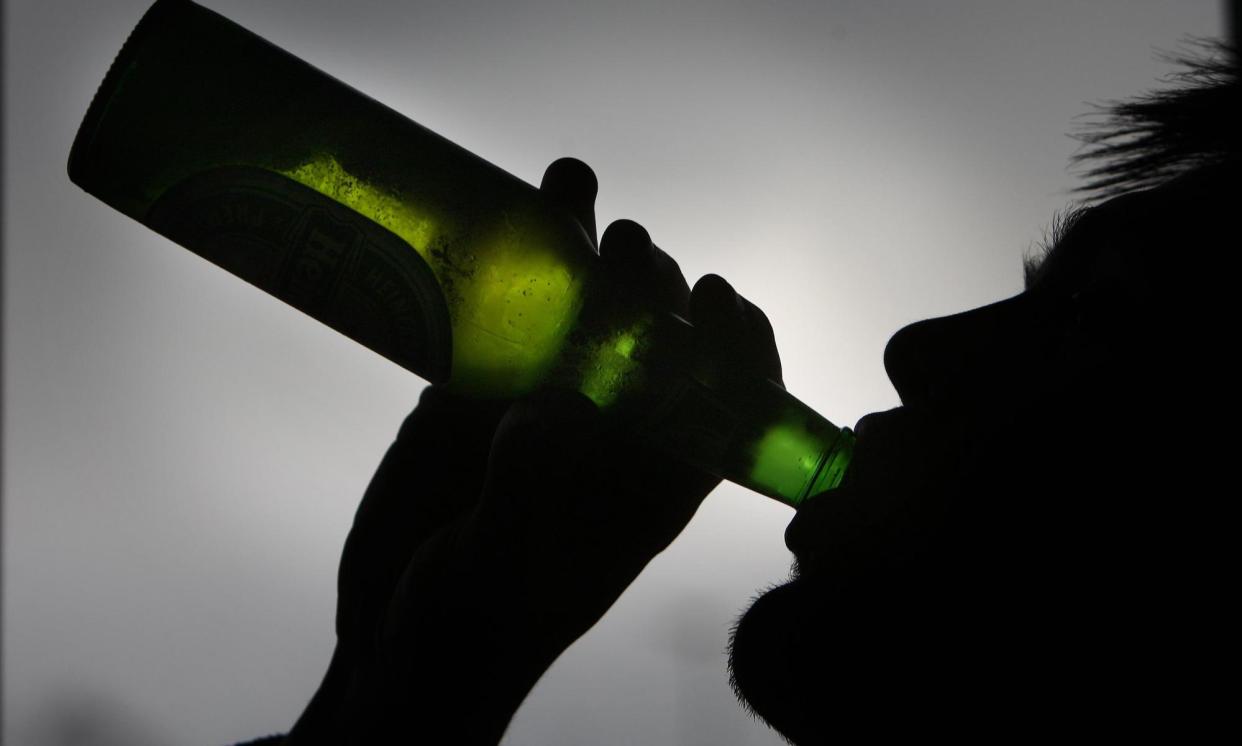Heavier drinking during Covid led to 2,500 more deaths from alcohol in 2022 – ONS

Alcohol killed a record number of people in 2022 as heavier drinking in the Covid pandemic took its toll in the UK, official figures have revealed.
Nearly 2,500 more people died from drinking than in 2019 (7,565 deaths), the year before the virus hit and caused already heavy drinkers to increase their intake, the Office for National Statistics said.
That 33% jump in deaths from alcohol means 10,048 people died from alcohol-specific causes – the highest level since records began in 2001 and a sharp increase on the pre-pandemic trend that had been steady since 2012. Scotland and Northern Ireland recorded more deaths than England per capita.
Related: Alcohol misuse and loneliness ‘increase risk of early-onset dementia’
“Research has suggested that people who were already drinking at high levels before the pandemic were the most likely to have increased their drinking during this period,” said David Mais, a health statistician at the ONS. “This is likely a factor in the increase in alcohol-specific deaths registrations we have seen in 2022. Alcoholic liver disease was the leading cause of these deaths, and as with previous years, rates are much higher among men [around double the rate].”
In England, the north-east was the worst-affected region.
As the pandemic hit and pubs and restaurants closed, people in England bought 12.6m extra litres of alcohol from off-licences in 2020 to 2021 compared with 2019 to 2020. Between March 2020 and March 2021, there was also a 57% increase in the proportion of respondents drinking at increasing risk and higher risk levels, according to previous research by Public Health England, now replaced by the UK Health Security Agency and Office for Health Improvement and Disparities.
No restrictions were placed on buying alcohol in the UK while countries such as South Africa, Thailand, India, Kenya and Barbados curbed sales for reasons including reducing socialising that could spread the virus and cutting hospital admissions from drink-fuelled violence.
“Each one of those deaths is a tragedy, representing a person who has had their life cut short and has left behind people who are grieving and miss them every day,” said Dr Richard Piper, the chief executive of Alcohol Change UK. “Years of inaction on alcohol harm has led to this, and the heartbreaking thing is these deaths were totally avoidable. Our government has the responsibility and the power to put preventative measures in place, including proper regulation of alcohol marketing, clearer alcohol labelling, and a minimum price for a unit of alcohol.”
The number of people in treatment for alcohol in England rose only slightly – 2% – in the year to March 2023 but there are concerns some people with drinking problems may not be getting help.
Piper said that from 2013–14 to 2020–21, the number of adults in England receiving treatment for problems with alcohol (and no other drugs) fell by 16%.
Prof Sir Ian Gilmore, the chair of Alcohol Health Alliance UK, said: “Alcohol is cheaper, more available, and more heavily marketed today than ever before. As the death toll reaches record levels, so do the profits of the multibillion-pound drinks industry. There’s clear public support for policies that tackle this crisis, despite what we hear from the industry about claims of a nanny state.”


